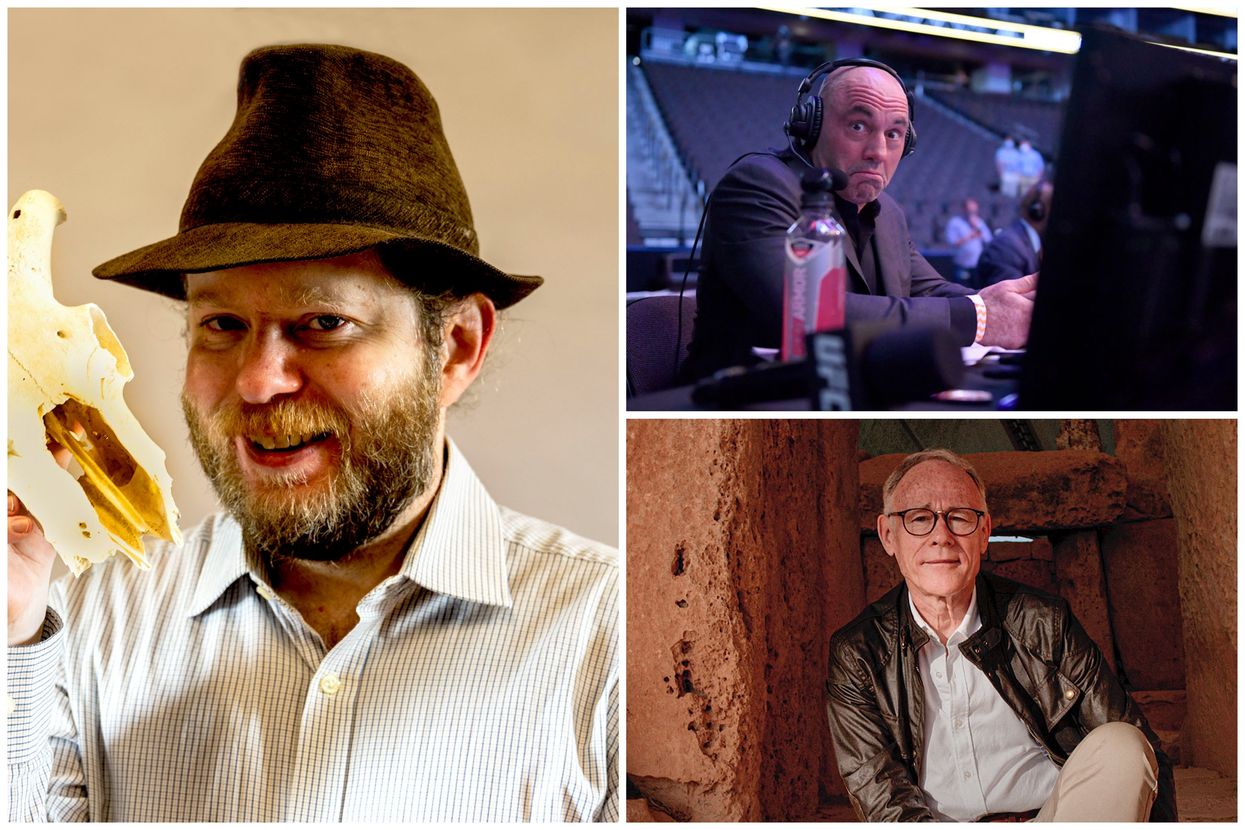Harriet Brewis
May 04, 2024
Ancient Apocalypse – trailer
Netflix
Joe Rogan is the biggest podcaster on the planet, with his eponymous show boasting a staggering 14.5 million followers on Spotify alone.
Author Graham Hancock is a similarly totemic figure, with his 2022 series Ancient Apocalypse dominating the Netflix charts for weeks, and his books topping bestseller lists across the world for more than 30 years.
Flint Dibble, on the other hand, is not a household name.
The classical archaeologist, currently based at Cardiff University, has a more modest 10,000 subscribers on YouTube. And yet, this self-styled “unknown scholar” was invited onto the Joe Rogan Experience to debate Hancock on the very history of humankind.
To sum up their arguments: Hancock, 73, promotes the theory that there once existed an advanced Ice Age civilisation that was destroyed in a global cataclysm some 12,000 years ago.
Dibble, on the other hand, stresses that there is simply no archaeological evidence to back up such a controversial hypothesis.
What ensued over the course of the four-and-a-half-hour-long episode was a fight for the “truth” about ancient civilisation, packed with hard talk, slideshows and cries of: “You’re misrepresenting me!”
But it was a battle that, after all the arguments and swapping of “truths,” Dibble believes he won.
Here, the proud academic speaks to indy100 about why he agreed to the contentious discussion, what he’s taken away from the whole experience and what’s at stake for archaeology.
Why were you picked for the podcast?
“It's a long story,” Dibble admitted.
It began in November 2022, when Dibble penned a Twitter thread disparaging Hancock’s boast in Ancient Apocalypse that he was waging war on “mainstream” archaeology.
The thread, along with similar criticism of the Neflix show went viral, prompting Hancock, 73, to urge academics to “put [their] money where [their] mouth is.”
Appearing on The Joe Rogan Experience – as he has done many times before – Hancock invited any archaeologist brave enough to join him for a debate on the show.
He wanted to make his case about the possibility of a lost Atlantis-linked civilisation, and dared any self-styled expert to prove him wrong.
Seeing the challenge, Dibble posted a public letter offering himself up as a worthy adversary.
“Graham and I then corresponded over email, and he convinced Joe Rogan's team to host the event,” Dibble explained.
And the rest, as they say, is history.
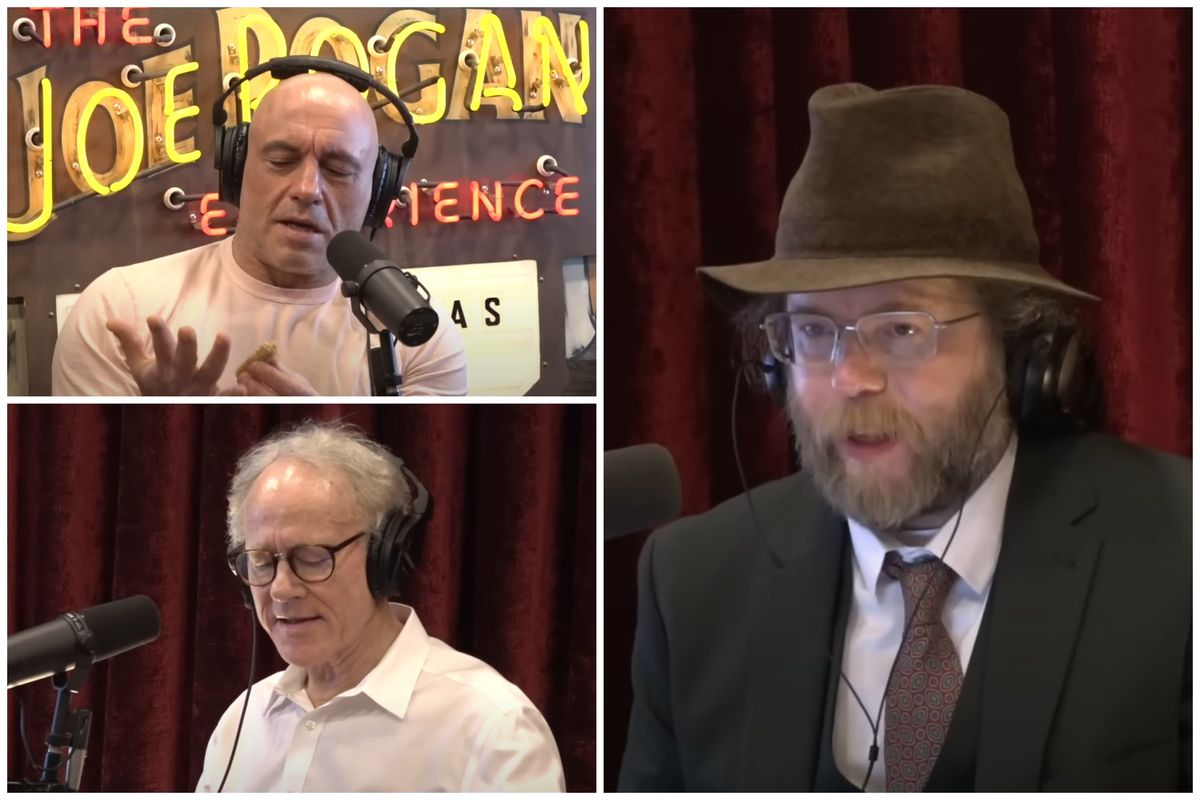
Why did you agree to do it?
Dibble recognised he was taking a risk by agreeing to appear on the show, believing that fans of the British writer would dismiss his dogged reliance on facts and hard evidence as symptomatic of a “woke mind virus”, while his colleagues would condemn him as a “pawn playing into the hands of pseudoscientists.”
And yet, he felt compelled to “try to stop the acrimony and the large number of trolling fans plaguing the archaeology community.”
Further defending his decision in a comment piece for Sapiens ahead of the episode’s release, he wrote: “I’m appearing because Rogan’s podcast draws an audience in the tens of millions.
“If scholars want to curb the spread of misinformation, we need to stop just talking among ourselves or to audiences of like-minded people.”
What was your aim in joining this debate?
“My duty is to present what we actually know – the evidence that we have,” Dibble said.
“I wanted to make this an educational platform where I could explain what archaeology actually does, what it teaches us about people around the world, and what that says about cultural heritage. Highlighting human accomplishments was the goal here.”
Dibble acknowledged that archaeology “can never explore every inch of this planet”, but stressed that “we've actually done a significant amount of exploration”.
“That's really important to highlight because people don't seem to understand the scope of archaeology,” he said. “Especially in the last 50 to 60 years where more cultural heritage laws have been put into place all over the world.
“These mean that any time significant construction or infrastructure is developed, archaeologists go in and actually record what's there, meaning the quantity of data set has seriously increased over the past five decades.
“In fact, there are millions of sites and billions of artefacts that have been studied and presented in some fashion or another.
“And no, there’s no evidence of an advanced Ice Age civilisation."
[rebelmouse-image 52145474 expand=1 dam="1" alt="" site_id=24473854 is_animated_gif=false original_size="3000x2000" crop_info="%7B%22image%22%3A%20%22https%3A//assets.rbl.ms/52145474/origin.jpg%22%2C%20%22thumbnails%22%3A%20%7B%22origin%22%3A%20%22https%3A//assets.rbl.ms/52145474/origin.jpg%22%2C%20%22600x400%22%3A%20%22https%3A//www.indy100.com/media-library/hancockdibble-jpg.jpg%3Fid%3D52145474%26width%3D600%26height%3D400%26coordinates%3D0%252C0%252C0%252C0%22%2C%20%221245x700%22%3A%20%22https%3A//www.indy100.com/media-library/hancockdibble-jpg.jpg%3Fid%3D52145474%26width%3D1245%26height%3D700%26coordinates%3D0%252C0%252C0%252C314%22%2C%20%221500x2000%22%3A%20%22https%3A//www.indy100.com/media-library/hancockdibble-jpg.jpg%3Fid%3D52145474%26width%3D1500%26height%3D2000%26coordinates%3D0%252C0%252C1500%252C0%22%2C%20%22400x225%22%3A%20%22https%3A//www.indy100.com/media-library/hancockdibble-jpg.jpg%3Fid%3D52145474%26width%3D400%26height%3D225%26coordinates%3D0%252C0%252C0%252C314%22%2C%20%22210x%22%3A%20%22https%3A//www.indy100.com/media-library/hancockdibble-jpg.jpg%3Fid%3D52145474%26width%3D210%22%2C%20%221200x400%22%3A%20%22https%3A//www.indy100.com/media-library/hancockdibble-jpg.jpg%3Fid%3D52145474%26width%3D1200%26height%3D400%26coordinates%3D0%252C98%252C0%252C902%22%2C%20%221000x750%22%3A%20%22https%3A//www.indy100.com/media-library/hancockdibble-jpg.jpg%3Fid%3D52145474%26width%3D1000%26height%3D750%26coordinates%3D0%252C0%252C334%252C0%22%2C%20%222000x1500%22%3A%20%22https%3A//www.indy100.com/media-library/hancockdibble-jpg.jpg%3Fid%3D52145474%26width%3D2000%26height%3D1500%26coordinates%3D0%252C0%252C334%252C0%22%2C%20%2235x35%22%3A%20%22https%3A//www.indy100.com/media-library/hancockdibble-jpg.jpg%3Fid%3D52145474%26width%3D35%26height%3D35%22%2C%20%22750x1000%22%3A%20%22https%3A//www.indy100.com/media-library/hancockdibble-jpg.jpg%3Fid%3D52145474%26width%3D750%26height%3D1000%26coordinates%3D0%252C0%252C1500%252C0%22%2C%20%221200x800%22%3A%20%22https%3A//www.indy100.com/media-library/hancockdibble-jpg.jpg%3Fid%3D52145474%26width%3D1200%26height%3D800%26coordinates%3D0%252C0%252C0%252C0%22%2C%20%22300x%22%3A%20%22https%3A//www.indy100.com/media-library/hancockdibble-jpg.jpg%3Fid%3D52145474%26width%3D300%22%2C%20%22600x300%22%3A%20%22https%3A//www.indy100.com/media-library/hancockdibble-jpg.jpg%3Fid%3D52145474%26width%3D600%26height%3D300%26coordinates%3D0%252C0%252C0%252C500%22%2C%20%22600x200%22%3A%20%22https%3A//www.indy100.com/media-library/hancockdibble-jpg.jpg%3Fid%3D52145474%26width%3D600%26height%3D200%26coordinates%3D0%252C98%252C0%252C902%22%2C%20%22980x%22%3A%20%22https%3A//www.indy100.com/media-library/hancockdibble-jpg.jpg%3Fid%3D52145474%26width%3D980%22%2C%20%221200x600%22%3A%20%22https%3A//www.indy100.com/media-library/hancockdibble-jpg.jpg%3Fid%3D52145474%26width%3D1200%26height%3D600%26coordinates%3D0%252C0%252C0%252C500%22%2C%20%22600x600%22%3A%20%22https%3A//www.indy100.com/media-library/hancockdibble-jpg.jpg%3Fid%3D52145474%26width%3D600%26height%3D600%26coordinates%3D0%252C0%252C1000%252C0%22%2C%20%22700x1245%22%3A%20%22https%3A//www.indy100.com/media-library/hancockdibble-jpg.jpg%3Fid%3D52145474%26width%3D700%26height%3D1245%26coordinates%3D105%252C0%252C1771%252C0%22%2C%20%22600x%22%3A%20%22https%3A//www.indy100.com/media-library/hancockdibble-jpg.jpg%3Fid%3D52145474%26width%3D600%22%2C%20%22300x300%22%3A%20%22https%3A//www.indy100.com/media-library/hancockdibble-jpg.jpg%3Fid%3D52145474%26width%3D300%26height%3D300%26coordinates%3D0%252C0%252C1000%252C0%22%7D%2C%20%22manual_image_crops%22%3A%20%7B%229x16%22%3A%20%7B%22sizes%22%3A%20%5B%22700x1245%22%5D%2C%20%22top%22%3A%200%2C%20%22height%22%3A%202000%2C%20%22width%22%3A%201124%2C%20%22left%22%3A%20105%7D%2C%20%22600x300%22%3A%20%7B%22sizes%22%3A%20%5B%22600x300%22%5D%2C%20%22top%22%3A%200%2C%20%22height%22%3A%201500%2C%20%22width%22%3A%203000%2C%20%22left%22%3A%200%7D%2C%20%223x1%22%3A%20%7B%22sizes%22%3A%20%5B%221200x400%22%2C%20%22600x200%22%5D%2C%20%22top%22%3A%2098%2C%20%22height%22%3A%201000%2C%20%22width%22%3A%203000%2C%20%22left%22%3A%200%7D%2C%20%223x2%22%3A%20%7B%22sizes%22%3A%20%5B%221200x800%22%2C%20%22600x400%22%5D%2C%20%22top%22%3A%200%2C%20%22height%22%3A%202000%2C%20%22width%22%3A%203000%2C%20%22left%22%3A%200%7D%2C%20%221x1%22%3A%20%7B%22sizes%22%3A%20%5B%22600x600%22%2C%20%22300x300%22%5D%2C%20%22top%22%3A%200%2C%20%22height%22%3A%202000%2C%20%22width%22%3A%202000%2C%20%22left%22%3A%200%7D%2C%20%223x4%22%3A%20%7B%22sizes%22%3A%20%5B%221500x2000%22%2C%20%22750x1000%22%5D%2C%20%22top%22%3A%200%2C%20%22height%22%3A%202000%2C%20%22width%22%3A%201500%2C%20%22left%22%3A%200%7D%2C%20%2216x9%22%3A%20%7B%22sizes%22%3A%20%5B%221245x700%22%2C%20%22400x225%22%5D%2C%20%22top%22%3A%200%2C%20%22height%22%3A%201686%2C%20%22width%22%3A%203000%2C%20%22left%22%3A%200%7D%2C%20%224x3%22%3A%20%7B%22sizes%22%3A%20%5B%222000x1500%22%2C%20%221000x750%22%5D%2C%20%22top%22%3A%200%2C%20%22height%22%3A%202000%2C%20%22width%22%3A%202666%2C%20%22left%22%3A%200%7D%2C%20%222x1%22%3A%20%7B%22sizes%22%3A%20%5B%221200x600%22%2C%20%22600x300%22%5D%2C%20%22top%22%3A%200%2C%20%22height%22%3A%201500%2C%20%22width%22%3A%203000%2C%20%22left%22%3A%200%7D%7D%7D" pin_description="" caption="Hancock (left)\u00a0believes that it is "premature" to rule out the possibility of a lost civilisation, while Dibble (right) points to the evidence" photo_credit="(Netflix/Flint Dibble)"] Hancock (left) believes that it is "premature" to rule out the possibility of a lost civilisation, while Dibble (right) points to the evidence(Netflix/Flint Dibble)
So why is Hancock’s argument so compelling?
The crux of Hancock’s argument during his debate with Dibble was simple: just because we can’t currently prove the presence of such a civilisation, doesn’t mean it didn’t exist.
The 73-year-old repeatedly made the point that the world’s great sites have remained largely unexplored, adding: “So to say that there's no possibility of any traces of a lost civilisation [...] seems to me a bit premature.”
“Just one per cent of the Sahara desert has been excavated,” he said, while “95 per cent of the Amazon has simply not been investigated at all” and the numbers are similar for the Earth’s submerged continental shelves.
“[This amounts] to 27 million square kilometres, the size of Europe and China added together, and you’ve investigated less than five per cent of it. That doesn’t matter?” he asked Dibble.
Hancock also pointed to sites like Japan's Yonaguni Monument and the so-called Bimini Road, in the Bahamas, whose origins continue to divide archaeologists and geologists.
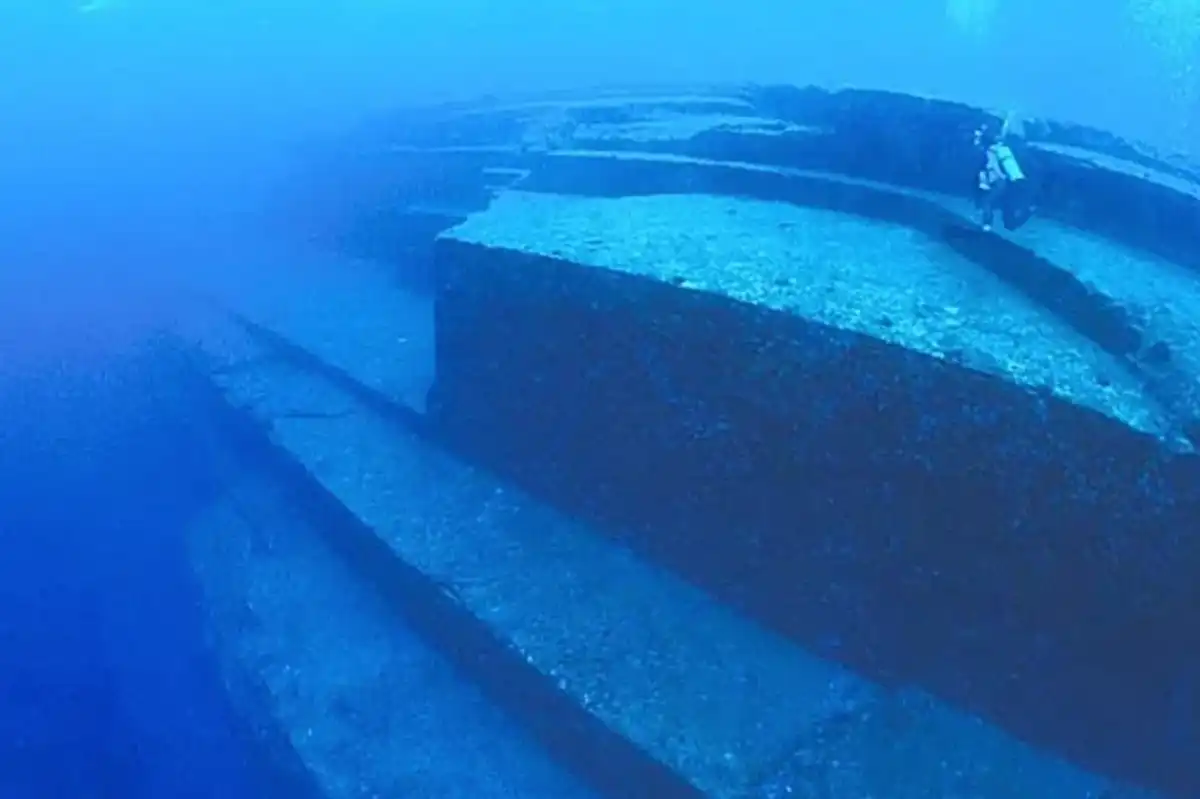
Whilst some insist these underwater structures are natural formations, others argue that their staggering appearance and layout could only have been made possible by human hands.
And, if the latter is true, it would force us, in Hancock’s words, to “revolutionise our whole view of human history.”
Addressing how he and his theories are treated, the author went on: “For archaeology to quite viciously and unpleasantly attack me for suggesting the possibility that there might be a lost civilisation while having failed, thus far, to investigate thoroughly the vast areas of the submerged continental shelves, the vast areas of the Amazon rainforest, the vast areas of the Sahara Desert that have not been investigated, is premature and disingenuous.”
But, for Dibble, this reasoning doesn’t wash.
“Science in general is based upon incomplete evidence, whether it's biologists trying to estimate insect populations or the genetic structure of different species, or whether it's astronomers looking into space,” he said.
“It’s the same for our doctors, who deal with incomplete evidence when they have to diagnose and treat us, and politicians who deal with incomplete evidence when making decisions about what to do.
“It’s impossible to have a full picture of pretty much anything but that does not mean we shouldn't have faith in expertise, scholarship and science at all.”
When it comes to the prospect of a lost, sophisticated people, Dibble emphasised that thousands of Ice Age sites have been identified, but they all show the “ephemeral traces of hunter-gatherers, rather than some sort of advanced civilisation.”
“Why do we have so much evidence for ephemeral hunter-gatherers, but not evidence from an advanced civilization that should leave behind monuments that are far easier to find?” he asked.
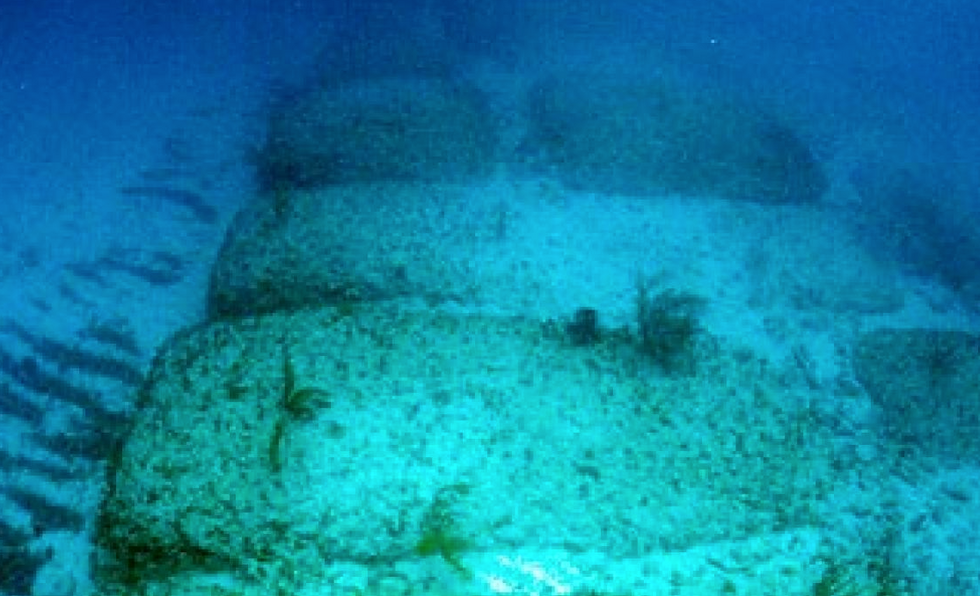
Why does it matter that counter-mainstream theories like Hancock’s exist?
“We live in a world where there's a growing distrust in expertise and in intellectualism,” Dibble said.
“And if you watch something like Ancient Apocalypse, you’ll see people like Graham Hancock being very disparaging of archaeologists – he calls us arrogant, he calls us patronising, he tells his audience not to trust us.
“And so I think there's an overlap between that kind of anti-expertise and other kinds of anti-establishment rhetoric that impacts people's health, for example, the anti-vax movement.”
He conceded: “I think there are justified reasons why people have lost trust in expertise, but I also think we, as scientists and scholars, should be speaking up and making our case to the public that education matters, scholarship matters, university systems matter.”
Addressing the cuts and redundancies that are currently sweeping universities across the UK, he added: “We need to properly fund these institutions because our entire society is built upon education, science and technology and having empathy for one another – treating each other with respect, which is what we learn in the humanities. And we need to restore that kind of faith.
“After all, archaeologists, for example, we’re mostly just doing our jobs, right? We're trying to understand the past with an incomplete set of evidence. And for people like Hancock to breed this resentment against us is a real problem.
“So it’s up to us as archaeologists, doctors, scientists, etc., to explain to people why what we do is actually really important and matters for society.”
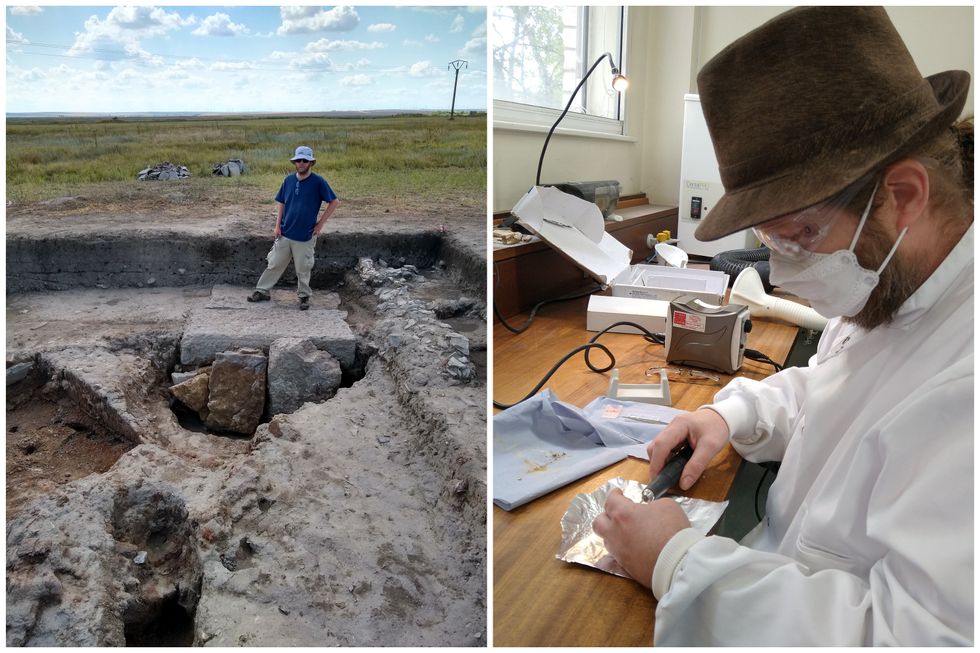
So who won the debate?
“I'll be optimistic and say that I won,” Dibble laughed, noting that a quarter of the way through their discussion (at one hour 27 minutes, to be precise), Hanock clearly admitted that there is, at present, “no evidence for an advanced civilisation.”
“I also noticed that Joe Rogan, as the moderator, seemed to agree with a lot of what I was saying, which I was surprised about given that he’s had Graham Hancock on a number of times before.
“Then, from what I've seen online, I think a lot of [Hancock’s] fans seem to have realised that he doesn't have much evidence for what he's saying and that archaeology itself does have a lot of evidence for what it's saying.”
And yet, Dibble stressed, winning over “Fancocks” (as they call themselves) was not his main goal.
“I thought I'd mostly be able to reach people who were more neutral,” he admitted. “So I was very pleased to have received a number of DMs on Twitter from former Hancock fans saying that they really respected how I explained the evidence so clearly and showed the sort of the everyday work that archaeology does.”
He acknowledged that “there’s this idea, promoted to the public, that what archaeology focuses on is the pretty art and the grand monuments.
“But really most of what we do is get dirty with really boring, mundane artefacts," he admitted. "I study animal bones mostly. But it's the trash of the past that tells the story of human history and prehistory.
“And I think getting that across is really important,” he went on. “Because archaeology is less about grand discoveries and individual artefacts and more about the bigger picture.
“It’s about the patterns we can glean from the past, and what these tell us about ordinary people and their very real accomplishments.”
Sign up for our free indy100 weekly newsletter
How to join the indy100's free WhatsApp channel
Have your say in our news democracy. Click the upvote icon at the top of the page to help raise this article through the indy100 ranking
Top 100
The Conversation (0)
